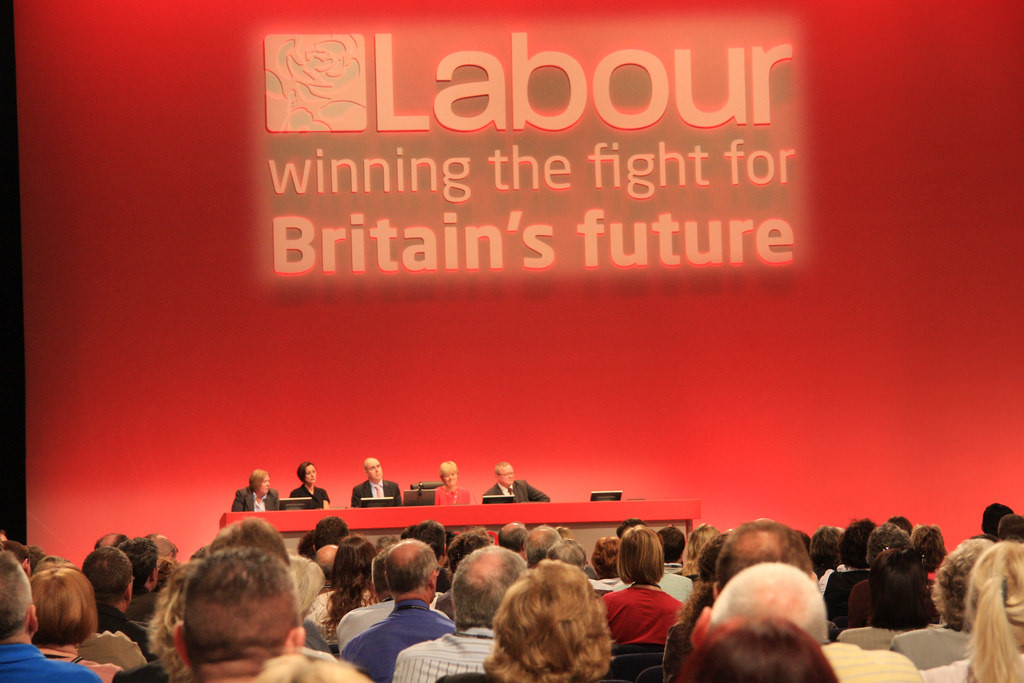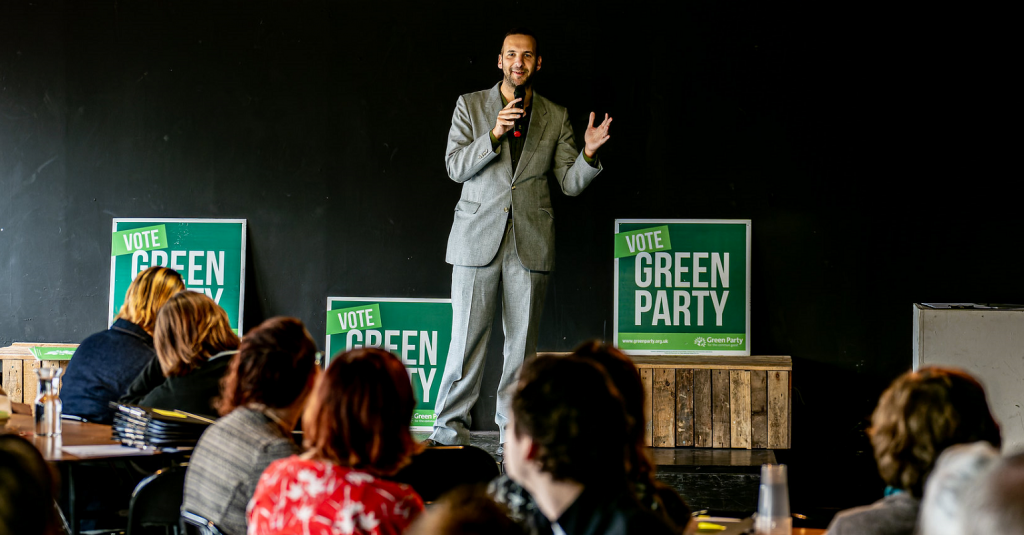A change of Labour leadership is needed (but not a move to the right)

In a recent letter, a group of left-wing Labour members has challenged Jeremy Corbyn over his unconditional support for the Conservative Government’s Article 50 Bill. In reality, the issue goes far beyond Brexit. When Corbyn was vying for leader of the Labour party, the leadership election was treated as a referendum on serious left-wing politics versus Blairism. This was understandable in a context where Ed Miliband was being painted as all but a communist essentially for being demonstrably to the left of the Conservative party, amidst an attack on the welfare state that was (and is) killing people. The argument was framed as one between people who wanted a return to Labour’s radical roots and neoliberals who found this attitude silly and, crucially unelectable, and were ‘baffled’ by its resurgence.
The conversation badly needs to move beyond this. The British public might indeed vote for social democracy. Of course, any serious left-wing government would have an up-hill battle against corporate-funded media to get elected, and corporate interests once in power. Nonetheless, in this climate of growing poverty and disenfranchisement, a social-democratic government does have a chance of being elected at Westminster and could implement fairer policies. Corbyn can do neither. This is because Corbyn does not have the necessary skills to lead the Labour party, much less the Government. Nor does he allow space for a more consensus-based politics to fill the breach. Corbyn does not make left-wing policies more likely. Therefore opposing Corbyn’s leadership of the Labour party is not opposing a left-wing Labour party. Left-wing opposition to Corbyn provides a vital opportunity for the Labour Party to take the good things from the Corbynite movement and use them to build a truly democratic and effective socialist party – as Corbyn has failed to do.
Corbyn’s inability to implement policies is evident in his approach to Brexit. Though he made good demands for the nature of the Brexit deal such as protecting workers’ rights and keeping EU anti-tax evasion measures, he ordered Labour MPs to support the Brexit bill unconditionally – thereby giving the government no incentive to listen to him. The Government did have a majority but, in this pro-Remain Parliament, some cross-party cooperation might have been possible especially if it were clearly understood that this was not an attempt to stop Brexit, but to improve it. At the very least, making your own support for a bill conditional on the amendments you suggest is necessary if you want to persuade anyone that your amendments really matter. So, there was plenty of thinking about what the best outcome would be here – but there was simply no strategizing about how to achieve it. One was useless without the other.
This is not a call for ‘good, strong leadership’; to call Corbyn’s leadership style ineffective is not to give up on cooperative consensus based politics because this is not how he has led. His attempts to impose authority are at least as problematic as his failure to do so. Trying to whip the Article 50 vote represented a failure to work with a diverse party representing diverse constituencies, with serious and complex differences of opinion. As the protest letter to him indicates, he also ignores the Labour membership that has recently seen a grass roots revival. This was his way or the highway. That is an intensely authoritarian way of doing politics.
Correspondingly, the way in which Corbyn has supported Brexit neglects the complexity of the democratic process, making him a poor choice to spearhead a deepening of the democratic process. He supported the article 50 bill unconditionally ostensibly to respect the democratic will expressed in the EU referendum. Supporting Brexit for this reason is fair enough. But if he opposed the bill not in order to stop Brexit, but in order to get a better Brexit, how would this have frustrated that will? People voted for Brexit, not for Theresa May to shape it. Furthermore, parliamentary democracy is supposed to reflect diversity – and this is one of its strengths (whatever its weaknesses). Why, then, is it respectful of democracy to impose a three-line whip on supporting Article 50, rather than, for instance, on MPs voting with the majority of their own constituents? The most democratic thing to do here was unclear, but it was not this. One elected representative imposes his own perspective on hundreds of others in defiance of the body that gave him the (theoretical) power to do so. That is not grassroots democracy.
Corbyn has brought to the Labour frontbench a genuine concern for social justice and serious desire to challenge politics’ beholdenness to corporate interests. Without him, the English left might have been scarcely represented in parliament. However, he will not succeed in turning these concerns into government policies. Moreover, his own vision of democracy is not radical enough. If the Labour left keeps behind him now, two things could happen:
- Corbyn stays and the Conservatives are in power for decades.
- The Blairites within the Labour party wrest back control, and the Conservatives are almost certainly in power for decades.
Under a Blairite banner, it is very unlikely that Labour would win the next election; if the Conservative victory in Cumbria shows that a move to the left is insufficient for Labour to navigate the current storm, a Blairite position will, at the very least, be even worse at stemming the flow of Leave voters from Labour’s northern-English and Welsh heartlands. To do that, Labour needs a left-wing platform that is also effective. Blairism will not reinvigorate the party in the way that its advocates hope; we would not end up with David Miliband or Harriet Harman as Prime Minster, and thus crawl our way back to the lesser of two evils. And, sadly, a continuing Conservative government is especially dangerous in the current climate. As Europe tailspins to the far-right, a right-wing, xenophobic government will carry Britain along with it, causing multiple constitutional crises along the way. Put simply, if Corbyn stays, the best case scenario for Labour is a swing back to Blairism, and, for Britain, this would be an even worse scenario than many on the left realise.
Who should replace Corbyn? That is a good question. The lack of an obvious answer is problematic, but it is also an opportunity: Labour does need someone capable of fighting effectively on a UK wide scale for social justice, but it doesn’t need a hero. It shouldn’t be looking for a ‘great leader’ or standard bearer, but a competent facilitator. This is important for two reasons:
- A movement built around an individual has problems becoming genuinely democratic. By definition, democracy is not top down. Also, a deep democracy should represent diversity and involve consensus. Democracy should not end with the election of a leader.
- A cult of personality has risen up around Corbyn, painting him as a saint. The right-wing media has responded with a series of personal attacks. This has made it all but impossible to have a reasonable and therefore useful conversation about Corbyn’s strengths and weaknesses, and the merits and faults of the movement he represents.
Once this is understood, it becomes evident that there are many other options – not perfect ones, but better ones.
It is not yet over for the Labour left, or Labour’s chances of winning back power, but it soon will be. If those who put Corbyn in power now seek another leader, they may choose who it will be, and what they must stand for. The last leadership election demonstrates this: Corbyn’s competitors, Angela Eagle and Owen Smith, were as far to the left of Ed Miliband as Andy Burnham, Yvette Cooper and Liz Kendall had been to his right. In short, the Labour left had already succeeded in turning the party around. Corbyn has been vital to this, but he cannot now lead. If he continues trying to do so, he will turn the party back round again. To advance the cause to which he has devoted his life, Corbyn must now step down. There is a rapidly closing window of opportunity for Labour to become an effective left-wing party and ultimately a government. The Labour left must act now.




Owen Smith, Angela Eagle and Ed Moribund are left-wing? That’s news to me and many others. All three abstained on a bill that included:
-Reducing the household benefit cap from £26,000 to £20,000 (£23,000 in London).
-Freezing the rate of many major benefits and tax credits for four years; excluding pensioner benefits and many benefits related to disability.
-Limiting the child element of universal credit to a maximum of two children.
-Reducing rents in social housing in England by 1% a year for 4 years from April 2016
-Stopping those on certain benefits being able to claim additional help towards their mortgage payments; replacing the scheme with a loan.
-Requiring a series of reports to be produced by the Secretary of State on employment, apprenticeships and troubled families.
What genuine left-winger would support that? There is a need to consider a future of the Labour Party without Jeremy Corbyn. The left can’t rally around a leader in his late sixties forever. There may be a better left-wing leader than Jeremy Corbyn. Ed Moribund, Angela Eagle and Owen Smith not left-wing. The woes of the Labour Party are hardly all the fault of Jeremy Corbyn in the first place. He is leading a party with 170 Blairite-Tories who aren’t going to change overnight or at all, an incandescently hostile press and an unreformed party apparatus. The response of the left must surely be to weed out the right-wingers.
Thanks for your thoughts and sorry for the slow response.
Firstly, I’d agree that Ed Miliband is not left wing. That was partly my point. To paint Ed Miliband as a communist is pretty ridiculous. Relatedly, my point about Angela Eagle and Owen Smith was largely comparative. Certainly, neither are as far to the left as I would like, but they are both far to the left of Corbyn’s previous challengers. Their platforms certainly were. I agree that their abstention on the bill you cite is worrying, but I also think that looking for a ‘pure’ leftwinger (or ‘pure’ anything) risks taking us down the cult of personality, finding a great leader, route. In any case, arguments against Eagle and Smith are arguments for why the Labour left was right to continue supporting Corbyn in the last leadership election, not why they should do so now.
True, Corbyn’s age means he won’t remain leader for all that long, whatever happens, but actually what happens over the next few years is very important, partly because, if he sticks around as leader, he offers the Blairites a fresh opportunity to drag Labour back to the right. A strong left wing opposition is needed now.
Anyway, thanks for taking the time to comment.
I don’t perceive Yvette Cooper as Blairite. She stood on an anti-austerity line, I wanted her to win.
Corbyn’s history makes the public scareable about him. Who has neither got a scareable Bennite reputation with the public, nor a Blairite reputation with the membership? and won’t pander to UKIP on immigration? Who is not seen in a polarised way approved by half the party and demonised by half the party?
Again, thanks for the reply and sorry to take so long to respond. It was unfair of me to bracket Cooper in with Liz Kendall. As to the pandering to UKIP thing, she was Shadow Home Secretary when Labour was pandering to UKIP on immigration. In terms of her reputation, doesn’t her loss to Corbyn speak to her Blairite reputation (though admittedly that reputation holds to different degrees for different people)?